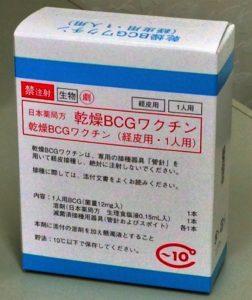Though BCG protects young children from disseminated TB, it has variable to no efficacy in adults. Reduced efficacy in adults is hypothesized to be due to lack of sustained mucosal immunity in the lung, the major site of infection. Researches from USA, Denmark and Khazakstan aimed to compare vaccine induced immune responses between oral and intradermal BCG vaccination. Researchers hypothesized that intradermal vaccination preferentially induces systemic immunity, where as oral BCG vaccination induces mucosal immunity. Thus combining both vaccination routes would ideally induce both systemic and mucosal immunity, which could potentially protect against disseminated TB and TB in the lung.
The study conducted by Hoft et al., was a phase I vaccine trial which measured safety and immunogenicity. Due to this they were unable not demonstrate induction of protective immunity against M.tb infection or TB disease. Unfortunately, due to a dropout rate of 29% (20 out of 68) of participants at the final visit (2 years post 1st vaccination), study results were not sufficiently powered to determine differences between the two vaccination strategies.
Overall the study suggests that intradermal vaccination compared to oral vaccination induces higher magnitudes of systemic immunity demonstrated by higher proportions of proliferating cells and functional IFN-γ producing cells in response to M.tb culture filtrate (secreted) protein stimulation. This was further demonstrated by higher tuberculin skin test conversion after intradermal BCG vaccination compared to oral vaccination. Data presented also suggested increased M.tb-derived lipoarabinomannan (LAM) IgA-specific antibody responses following oral vaccination but not intradermal vaccination. Co-administration of intradermal and oral BCG resulted in induction of both systemic and mucosal immune responses.
Unfortunately, as indicated earlier the study results were not sufficiently powered to detect significant responses due to high drop out. Thus further studies will be need to confirm these findings particularly on larger cohort, to determine if intradermal and oral BCG do truly induce localised immunity in different part of the body i.e. systemic vs mucosal immunity.
Journal Article: Hoft et al., 2017. PO and ID BCG vaccination in humans induce distinct mucosal and systemic immune responses and CD4+ T cell transcriptomal molecular signatures. Mucosal Immunology
Journal Article by Cheleka AM Mpande












